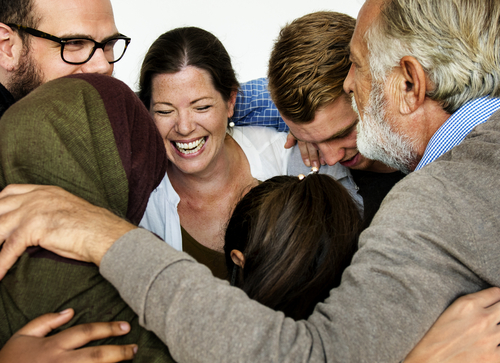Making it in recovery makes you an inspiration. Part of the program means passing on your knowledge and experience to others.
Be Choosy With Who You Spend Time With
Recovery is a challenging process for mind, body, and spirit. It takes a lot of courage, willingness, and open-mindedness to really dive in and the work that recovery requires. Plenty of people come to treatment and recovery without any intention of doing hard work. You’re living by example in recovery. Your life looks drastically than it did a few months ago because someone showed you the way and you put in the hard work to get there. Differentiating between those who want to recover and those who don’t isn’t always easy. Most sponsees and mentees will reveal themselves in a short amount of time, especially once the pressure to evolve is on. Importantly, you must understand that you can’t force someone to want to recover. Too much time and energy could be lost in trying to rescue, fix, or save other people. Let them discover how to save themselves, just like you did. If they don’t want to, it’s not up to you to make them want to.
Create A Sponsorship/Mentorship Family
You’re all in this together. Bringing your different sponsees together creates a sense of solidarity and fellowship in a unique way. Recovery emphasizes fellowship and meeting peers who are on the same path toward autonomy. You, as a sponsor and a mentor, create a small universe within that greater world. Working with you as a sponsor or mentor is a special experience that only these people will have. Go to meetings together, have “family” dinners, do book studies, go to inspirational movies, schedule fun activities, and create time for bonding.
Let Them Know, You’re Not The Therapist
As a sponsor and mentor in recovery you have one role only: to show people how to live in recovery. Your time is volunteered, not paid for, and certainly not obligatory. That being said, it’s important to define the rules, roles, and boundaries of your relationships. You’re not a sounding board, a punching bag, or a therapist. Don’t do more than you are capable of doing. For deep and emotional issues, always encourage them to talk to their therapist, bring a topic to their group processing, or talk to someone with professional certifications. Wherever you can offer insight, inspiration, and advice for recovery, that is your role. Many in recovery have dozens of unhealthy relationships in other areas of their life. Be the shining example of healthy boundaries in a loving relationship in recovery.
LEAD Recovery Center equips each client to become a leader and mentor in their own lives and the lives of others in recovery. Our transitional program is designed to help clients achieve autonomy for a healthy and balanced life, living clean and sober. For more information, call us today at 1-800-380-0012.


